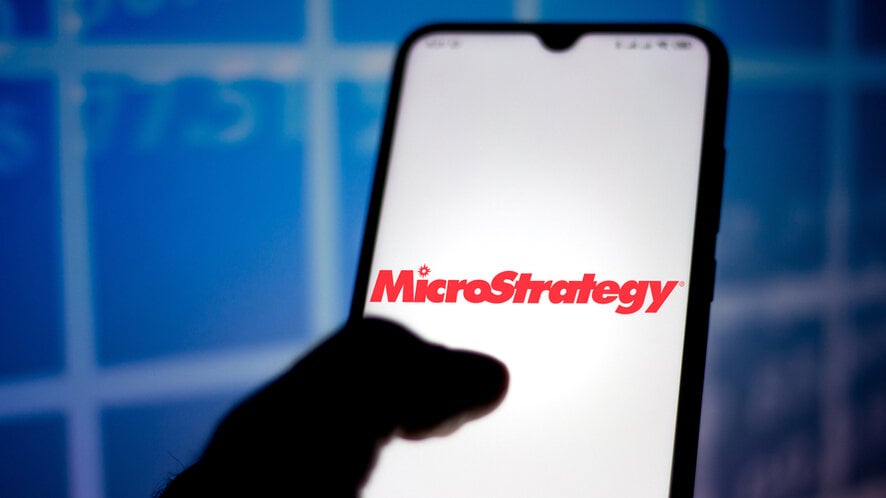
During a presentation at the annual MicroStrategy World conference in Las Vegas, MicroStrategy co-founder and Executive Chairman Michael Saylor introduced the open-source MicroStrategy Orange Decentralized Identity protocol.
“Michael presented a very compelling case for why we need decentralized identity and decentralized identifiers,” remarked MicroStrategy executive vice president of engineering Cezary Raczko to the audience. “He made an even more compelling case for anchoring digital identity into the Bitcoin blockchain, leveraging the strength and security of the Bitcoin network.”
With this announcement, MicroStrategy also released an unofficial draft of the MicroStrategy Orange specification on Github.
While the timing of this news was unexpected, Saylor had previously hinted at his company’s work in the identity and authentication space. He mentioned being aware of Ordinals after its launch and expressed interest in how it could inspire software innovations.
“The idea of burning data on the blockchain introduces new possibilities like burning a digital signature or a registration,” explained Saylor. “Enterprises currently have weaker security compared to Bitcoin.”
According to Saylor, using innovations with Bitcoin could provide a new level of security.
“The platform comprises three fundamental pieces,” Raczko shared. “A hosted service cloud at its core allows for issuing identifiers to users and deploying applications on the MicroStrategy Orange platform.”
Raczko stated that the Orange software development kit would make it simple for developers to integrate these capabilities into their own applications.
For instance, using email as an example, Raczko described how public and private keys generated using MicroStrategy Orange would be inscribed using the Ordinals protocol.
The MicroStrategy Orange documentation explains that the decentralized identity protocol utilizes a modified approach to inscriptions as Ordinals, focusing solely on data related to decentralized identity (DID). This allows for the creation and updating of documents with minimal restrictions while leveraging the SegWit feature of Bitcoin.
Raczko detailed the process of generating a unique decentralized identifier and public key pair for individuals, inscribing them on the Bitcoin Blockchain using the Orange server, enabling users to send Orange-signed emails.
“The opportunity we aim to pursue is integrating digital identity based on Bitcoin with the verifiable credential ecosystem, enabling various use cases where identity can be credentialled and anchored to Bitcoin,” added Raczko.
He also mentioned potential uses of the MicroStrategy Orange decentralized identifier in verifying users on social media platforms, authenticating messages, diplomas, medical records, and more in a decentralized manner, anchored to the Bitcoin blockchain.
Raczko hinted at the possibility of displaying an “orange check” for verified users across platforms using Orange.
Edited by Ryan Ozawa.
#MicroStrategy #Building #Decentralized #Bitcoin #OrdinalsLike #Inscriptions #Decrypt
- SEO Powered Content & PR Distribution. Get Amplified Today.
- PlatoData.Network Vertical Generative Ai. Empower Yourself. Access Here.
- PlatoAiStream. Web3 Intelligence. Knowledge Amplified. Access Here.
- PlatoESG. Carbon, CleanTech, Energy, Environment, Solar, Waste Management. Access Here.
- PlatoHealth. Biotech and Clinical Trials Intelligence. Access Here.
- Source: https://cryptoinfonet.com/bitcoin-news/microstrategy-is-developing-a-decentralized-id-on-bitcoin-with-ordinal-like-inscriptions/